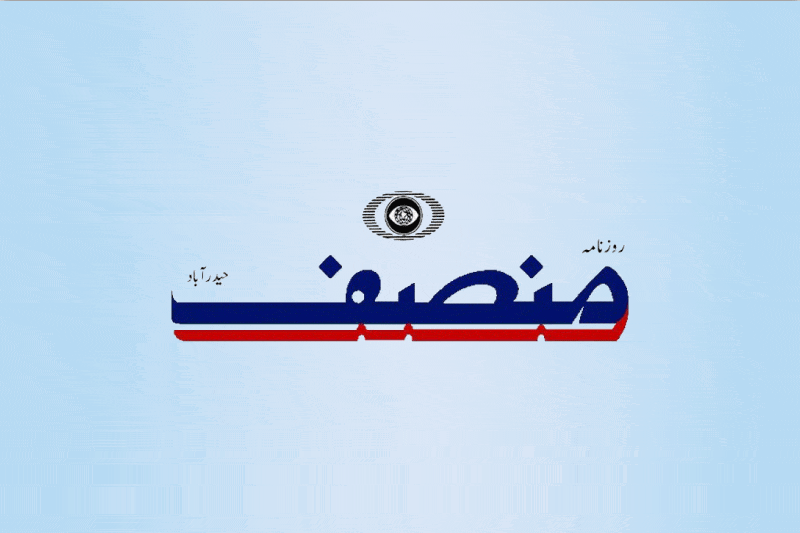International magazine calls for investigation on violence against Indian Muslims
Despite a grave deterioration in the protection of the human rights of India’s largest minority, the reaction from the international community so far is notable for its silence.

Condemning the violence against Muslims in India, The Diplomat, an international online news magazine, in its article entitled “Violence Against Indian Muslims Must Be Urgently Investigated” states, “As India celebrates the 75th anniversary of its independence on August 15, it is far from the equal society envisioned by its founding father, Mohandas Gandhi. Evidence is mounting that the Bharatiya Janata Party (BJP) government is encouraging some of the most flagrant anti-Muslim discrimination seen in any democracy.”
Silence of international community
Deploring the global silence on the issue it observes, “Credible reports suggest that a growing number of the country’s 200 million Muslims are subject to planned and targeted threats, assault, sexual violence, and killings. Despite a grave deterioration in the protection of the human rights of India’s largest minority, the reaction from the international community so far is notable for its silence. This must change.”
Comparison with Rwanda
The author of the article Stephen Rapp, who is a senior fellow at the Center for the Prevention of Genocide at the U.S. Holocaust Memorial Museum and former U.S. Ambassador-at-Large for Global Criminal Justice and international prosecutor at the U.N.-backed tribunals for Rwanda and Sierra Leone, compares situation of India with that of Rwanda by saying, “Two decades ago, at the International Criminal Tribunal for Rwanda, I led the team that successfully prosecuted media leaders for direct and public incitement to genocide. Though there is no comparison between the current situation in India and the 100 days of mass murder that left over 800,000 dead in Rwanda in 1994, some of the hate speech that incited that genocide is familiar to the messages delivered at the highest levels of Indian politics and society today. In some cases, it is as explicit.”
Call for genocide
Mentioning call for genocide by Sadhvi Annapurna, national president of the Akhil Bharat Hindu Mahasabha and call for rape and impregnation of Muslim women by another Hindu leader, the writer noted, “Unfortunately, these incidents are not simply the behavior of a few bad apples. They appear to be the product of prejudice filtering down into all institutions and then expressed as discriminatory legislation.”
Claiming that serious violations of human rights are committed against Muslims in Uttar Pradesh and Jammu and Kashmir in a systemic manner, the writer points out that these amount to crimes against humanity.
Lack of judicial redress
The report rues an absence of international reaction which resulted in lack of judicial redress for victims. Calling for a formal investigative commission to establish the facts, the report asserted that there is sufficient credible evidence of massive violations for that.
Expressing concern about Indian Muslims, the report observes, “We are concerned that Muslims in India are becoming a persecuted minority and that authorities appear to have failed to adequately address serious and pervasive claims of ill-treatment. The violence is recurring in part because of the lack of an even-handed accountability framework.”
Muslims are provoked
It points out, “A pattern appears to be emerging where aggrieved Muslims are provoked into protesting, the protesters are punished, and the perpetrators are rarely rebuked.”
The writer mentions blasphemy against Prophet Mohammed by BJP officials to support his claim.
He noted, “Prime Minister Narendra Modi has said that Muslims are “part of our nation” with “equal rights and duties as others.” Recent legislation suggests otherwise.”
Call for international community’s intervention
Seeking international community’s intervention and an independent inquiry, the writer says, “This corrosive atmosphere must end. Indian authorities should conduct vigorous and credible investigations into rising crimes against minorities. But if the government is unwilling or incapable of doing so, then these issues must be addressed within the United Nations framework, preferably the Human Rights Council (HRC).”
Human rights are not an internal issue
He points out, “Human rights are not an internal issue for India but a concern of everyone. A formal HRC-mandated Commission of Inquiry could investigate all alleged violations. India would be expected to provide access for interviewing witnesses and gathering information, and the authorities would in turn be able to present evidence of its compliance with international law. It may not cooperate but then, as we have seen with Syria, Myanmar, and North Korea, the commission could rely on abundant evidence collected through remote witness testimony and open-source investigation.”
Platinum Jubilee Independence Day
The writer concluded by stating, “As India approaches a historic anniversary of its emergence from the shadow of colonial rule, a founding constitution that proudly promised a pluralistic state should not be trampled by rampaging sectarianism. Violations must be investigated and the responsible held to account. Not to do so is to invite further atrocities.”


